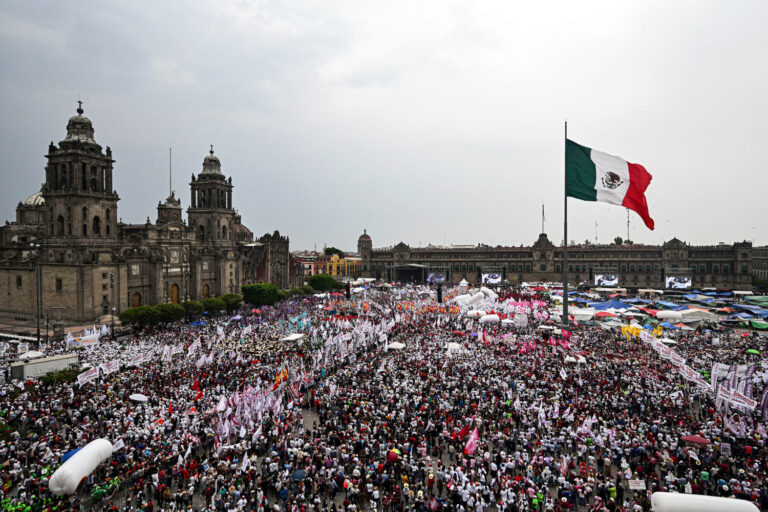Mexican voters are taking part in the largest election in the country’s history, casting ballots on Sunday to fill more than 20,000 local, state and federal positions and almost certainly to elect the country’s first female president.
But rampant violence has marred the path to one of the most important elections in Mexico’s history.
Criminal groups control much of Mexico, fighting over territory to intimidate residents to smuggle drugs into the U.S., make money from smuggling migrants and further their illegal businesses. Violence against politicians has also continued throughout this election, with the number of victims of political violence increasing by 150% since 2021, according to an analysis by Integria, a public policy consulting firm that tracks political risk and other issues in Mexico.
These have deeply discouraged Mexican voters, leading a majority to cite security as their top concern: Six in 10 Mexican adults believe their city is unsafe because of robberies and armed violence, according to a survey released in April by Mexico’s National Institute of Statistics and Geography.
The two leading presidential candidates, Claudia Sheinbaum of Mexico’s ruling Morena party and Xochitl Galvez of the opposition coalition Broad Front for Mexico, have very different ideas about the best way to reduce crime.
With Citizen Movement presidential candidate Jorge Álvarez Minez leading the polls in a distant third, one of them is expected to make history as Mexico’s first female president.
Sheinbaum, a former Mexico City mayor and physicist, said he would fight violence by continuing the “hugs, not bullets” policy implemented by his leader, outgoing President Andrés Manuel López Obrador, which does not directly combat drug cartels as the previous administration did.
Before Lopez Obrador took office, “the Mexican government and local authorities were at least rhetorically willing to do something” about the violence, said Tony Payan, director of the U.S.-Mexico Center at Rice University’s Baker Institute for Public Policy. “But since Lopez Obrador took office at the end of 2018, that discourse has completely changed… These criminals now believe they can do pretty much whatever they want and the state won’t pursue them.”
President Lopez Obrador’s policies have not significantly reduced homicides over the past six years, with at least 102,400 murders reported in that period, according to Mexican government data.
But the data also shows that former President Lopez Obrador’s strategy of pursuing drug lords with all-out war has not led to improved safety.
Galvez, a former senator and tech entrepreneur, has sought to convince voters that access to health care and economic development have stagnated under Morena’s administration and that crime rates remain high. The center-right candidate has also sought to position his party — a coalition of traditional parties that have long governed Mexico, including the conservative National Action Party (PAN), the smaller progressive Democratic Revolutionary Party and the conservative Institutional Revolutionary Party (PRI) — as the change needed to unify an increasingly polarized country.
Mexico’s next president will play a key role in determining U.S. priorities such as immigration and foreign policy, as well as the future of trade agreements that have made Mexico the United States’ largest trading partner.
Voting on Sunday opens at 8am local time and closes at 6pm.
Nicole Acevedo reported from New York, and Guado Venegas and Kayla McCormick from Mexico City.

